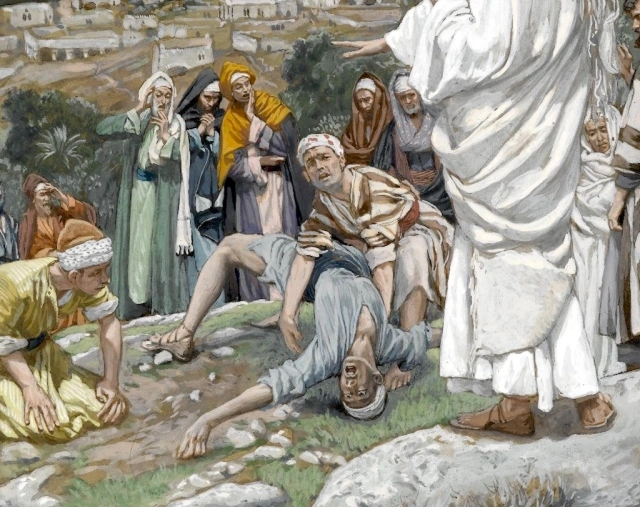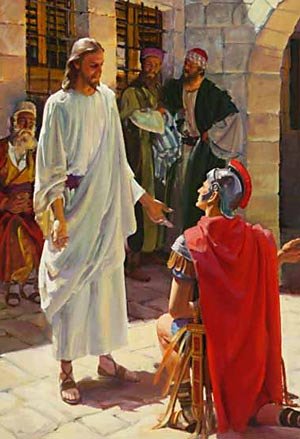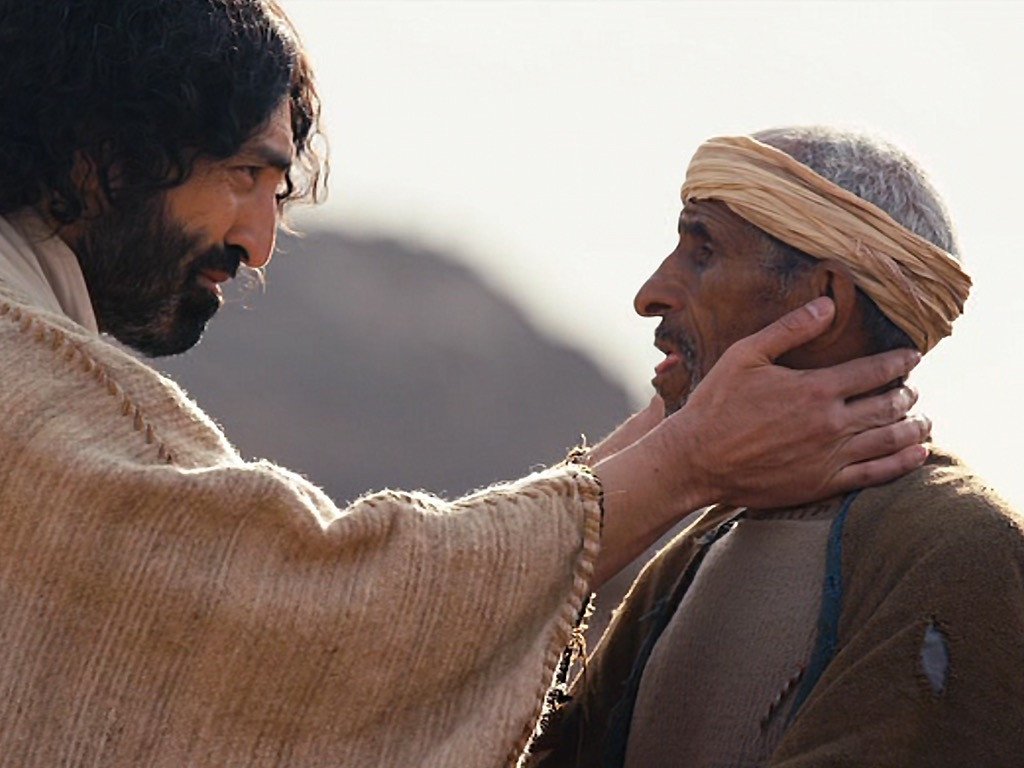As I reflect on this gospel from John 5:1-16, the first question that comes to mind is why is the gate called sheep gate? It was called the Sheep Gate because it was the entrance for sheep entering into the temple compound from the sheep markets (where lambs were sold for sacrifice in the temple) and the sheep pool (later known as Pool of Bethesda), where sheep were washed for sacrificing.
When Jesus walked on the earth, He always entered Jerusalem via the Sheep Gate (except for the Triumphal Entry). The Sheep Gate also led to Golgotha, the path Jesus took to the crucifixion.
The other question is why is the pool called Bethesda, when one visits St. Anne’s Church in Jerusalem, one can see a deep excavation that has revealed the ancient Pool of Bethesda. The Hebrew name Bethesda has been spelled various ways and given differing meanings. Some say it means “house of mercy” or “house of grace,” but others say it means “place of the two outpourings.” There is historical and archeological evidence that two adjacent pools of water served this area in ancient times.
I wonder about the plight of so many disable people at that time. John did not say what kind of physical problem the man suffered from or if he was an invalid from birth. In any case his condition was hopeless. John noted that the man had been ill for thirty-eight years. Thirty-eight also signifies the time spent in the wilderness by the Jewish people (Deut. 2:14). Is John trying to tell his readers something else here by using about the plight of the Jewish people at that time? This man probably lost all hope except for a healing at the pool when the angel stirred the waters. What havoc sin creates in this world (John 5:14)
Jesus’ seemingly strange question, Do you want to get well? was designed to focus the man’s attention on Him, to stimulate his will, and to raise his hopes. In the spiritual realm our greatest problem is that either we do not recognize we are sick (cf. Isa. 1:5–6; Luke 5:31) or do not want to be cured. We are often happy, for a while at least, in our sins.
Jesus knew about the man (John 2:23–24) and asked him if he wanted to be healed. One would think that the man would have responded with an enthusiastic, “Yes! I want to be healed!”. But, instead, he began to give excuses! He had been in that sad condition for so long and I wonder if his mind and will was as paralyzed as his body. The man replied that he lacked not the desire but the means to be healed. Without strength and without friends, he could not be helped when the pool water was stirred. He had tried but without success.
Jesus then said … Get up! Pick up your mat and walk. His command carried with it the required enablement. The Lord healed him through the power of His spoken word. As with dead Lazarus (John 11:43), Jesus’ word accomplished His will. This illustrates conversion. When I obey His command to believe, God works in and through His Word.
The cure was immediate and certainly some of the many people at the pool must have witnessed it. Jesus did not pause to heal anyone else; instead, He “moved away” (John 5:13) and I believe the reason being so as not to create a problem. God’s supernatural power was evident in the man’s instantaneous cure. He picked up his mat and walked. Muscles long atrophied were completely restored. Isaiah prophesied that in the days of the Messiah the lame would “leap like a deer” (Isa. 35:1–7). Here in Jerusalem was a public sign that the Messiah had come.
The healing on a Sabbath was a controversial issue at the time of Jesus which is not a point for discussion on this parable, it is enough to state that it caused quite a stir. Instead of rejoicing at the wonderful deliverance of the man, the religious leaders condemned the man for carrying his bed and thereby breaking the law. The healed man tried to evade any responsibility for violating the law of the sabbath by claiming he was just doing what he was told.
The relationship between this man and Jesus begets many questions. There is no evidence that he believed in Christ and was converted, yet we cannot say that he was opposed to the Saviour. In fact, he did not even know who it was that healed him until Jesus met him in the temple. Did the man go to the temple to give thanks to God and to offer the appropriate sacrifice? Like the demoniac who was healed and grateful this man offered no thanks or did not want to even follow Jesus. But this is not the first person to gratefully accept a gift and ignore the Giver.
Jesus later found the healed man in the temple area. This implied that Jesus sought him out (the second time) in order to speak to him. The ex-paralytic seemed to have no gratitude to Jesus: his conduct put him in a bad light. Jesus’ warning was that his tragic life of 38 years as an invalid was no comparison to the doom of hell. Jesus is interested not merely in healing a person’s body. The lesson for me here is it is far more important that my soul is healed from sin.
No matter how I look at this miracle, it is an illustration of the grace of God. It was grace that brought Jesus to the Pool of Bethesda, for who would want to mingle with a crowd of helpless people! Jesus did not heal all of them; He singled out one man and healed him. The fact that Jesus came to the man, spoke to him, healed him, and then met him later in the temple is proof of His wonderful grace and mercy. Similar with me, I’m singled out and sought after by Jesus, the question is my response to His seeking?
When I think of this in my personal life, Am I not like the invalid? Jesus came to seek me and am I glad about it, daily? He is the giver of all good and perfect gift (James 1:17), am I thankful about it? Jesus’s warning of not sinning any more, do I make that conscious effort of trying not to sin or avoiding the occasion of sin? Do I respond to His call? Personally speaking I need to put in a greater effort in my actions/responses to the call.



